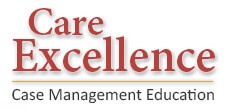How Case Managers in Health Plans Can Carve a Path for the Future
 Headlines are awash with news of uncertainty and forecasts of doom or change for many sectors of business and populations of people. Healthcare organizations, and organizations like health plans that support them in the healthcare marketplace, are taking postures of “wait and see” because of the uncertainty.
Headlines are awash with news of uncertainty and forecasts of doom or change for many sectors of business and populations of people. Healthcare organizations, and organizations like health plans that support them in the healthcare marketplace, are taking postures of “wait and see” because of the uncertainty.
Despite the external environment’s uncertainty, managers and leaders of care management staff still have a job to do every day: to lead their teams get work done. So how does a manager or leader prepare for a future that is uncertain, and give their team the tools to be ready as well?
Step 1: Critical Thinking Skills
Critical thinking skills are tools that care managers can cultivate in themselves, and pass along to their staff. What are critical thinking skills?
Scheffer and Rubenfeld in the Journal of Nursing Education describe seven steps, in which a problem is broken into parts, studied, compared to known rules or criteria to look for variances or similarities; then more information is gathered, more comparison is performed, with outcomes when applying concepts to the problem are predicted, tested, and results reviewed.
Step 2: Deepen Foundational and Advanced Technical Knowledge
Foundational skills in critical thinking as coached by involved leaders, along with training on foundational and advanced technical knowledge within their field, will equip staff with the ability to critically think through health plan members’ problems that they encounter. Critical thinking skills will take them far in being able to adapt to whatever may occur.
Step 3: Creative Thinking Skills
In a turbulently changing, new environment with challenges that have never been experienced before, what can a care manager leader do to prepare staff? Creative thinking goes a step beyond critical thinking, in that it helps to develop ideas that are unique, ideas that surpass current solutions or “best practices,” that can solve problems that may be entirely new.
Collaboration is Key
Central to creative thinking is teamwork and collaboration. While critical thinking may be done in an individual’s mind, several essential elements in creative thinking that require everyone in a group to participate are brainstorming, looking for similar problems from other disciplines, and futuring (Fogler and LeBlanc, 2013). Futuring is the idea that, if the group could imagine a situation where the barriers or constraints now limiting a solution were gone, what would the ideal solution be? How would this impact the change ideas?
Go Outside of Healthcare
Researcher Anthony McCaffrey of the University of Massachusetts described in an Atlantic Monthly article five strategies for creative problem solving. Several of his suggestions include using a thesaurus to expand the associations used in brainstorming; and a Russian engineering methodology called TRIZ which studies patterns, evaluates possible solutions and resolves trade-offs in solutions.
Tool for Care Manager Leaders
The Care Excellence staff have put together the eBook, Going Beyond Creativity, How Case Managers Can Turn Creativity Into Innovation That Solves Problems, to give you a way to take your first steps into this creative problem-solving realm. Giving you practical tips and opportunities to practice, you can put these new skills to work, exciting and engaging your care management staff in creative thinking and problem solving. With this start, you can launch your way, your health plan’s, and your members’ way into more sure footing for the uncertain, unexplored terrain ahead!
References:
Fogler, H. and LeBlanc, S., & Rizzo, B. Strategies for Creative Problem Solving, 3rd Edition, Prentice Hall, 2013.
Scheffer, BK. & Rubenfeld, MG. A consensus statement on critical thinking in nursing. Journal of Nursing Education, 2000 Nov; 39(8): 352-9.
Villarica, H., Professional Help: 5 Strategies for Creative Problem Solving, Atlantic Monthly March 30, 2012, retrieved 02.03.2017 from https://www.theatlantic.com/health/archive/2012/03/professional-help-5-strategies-for-creative-problem-solving/254415/
